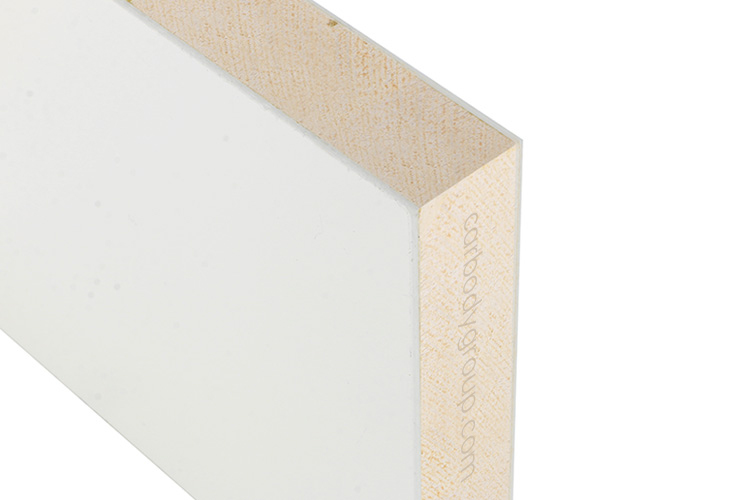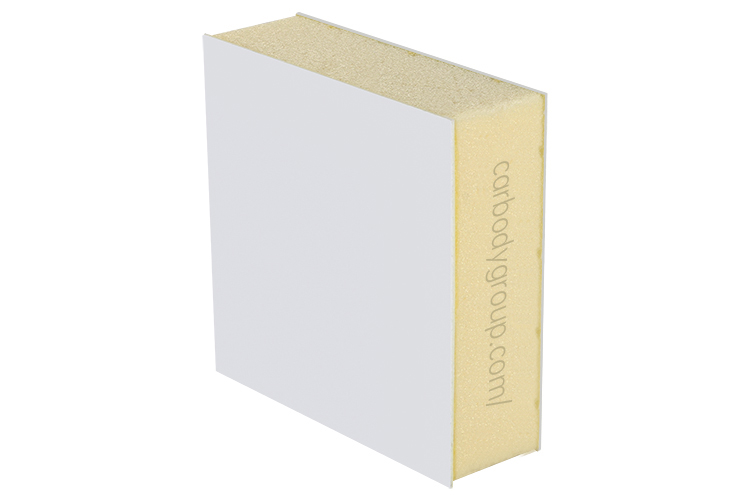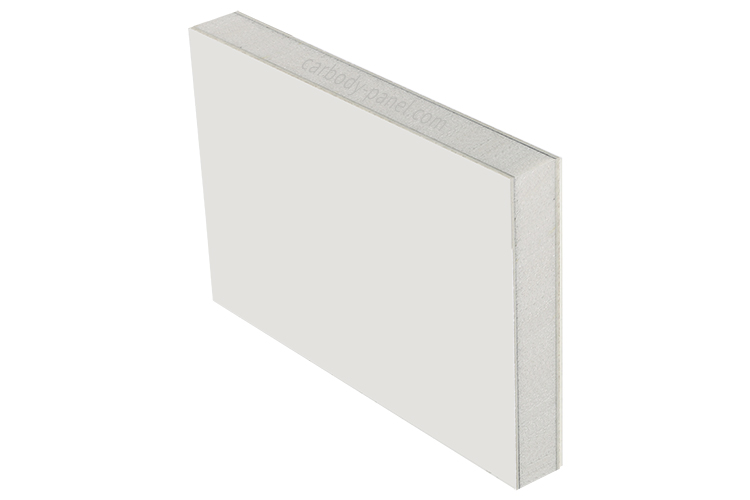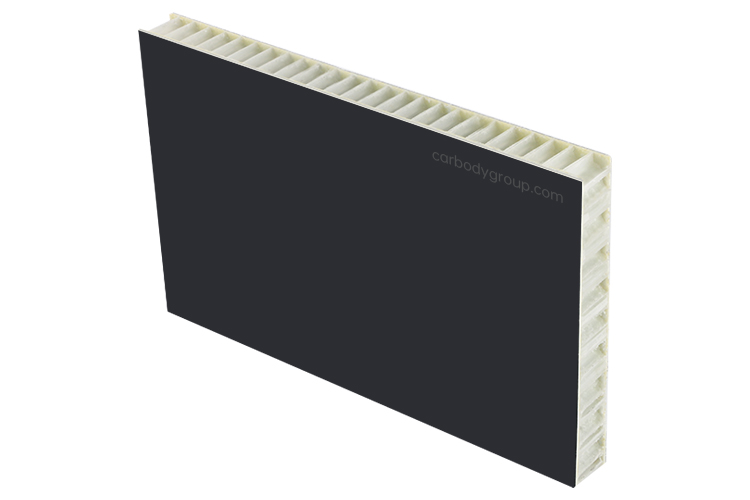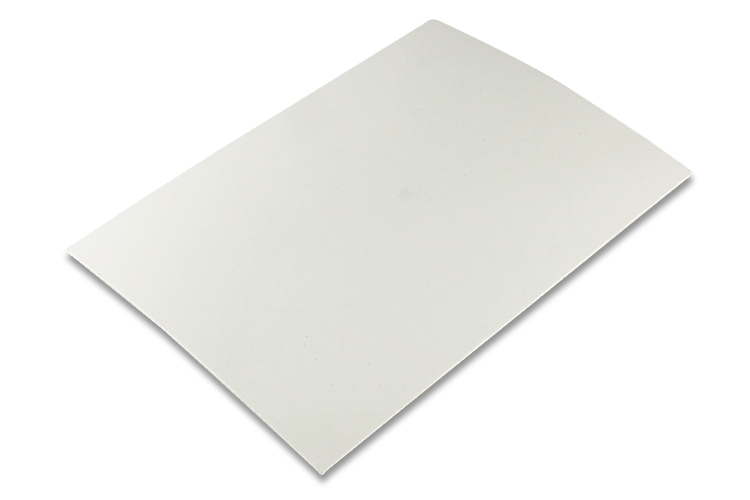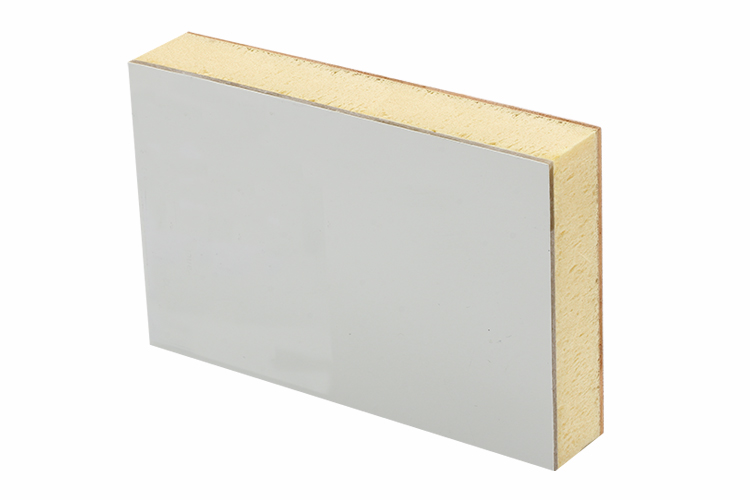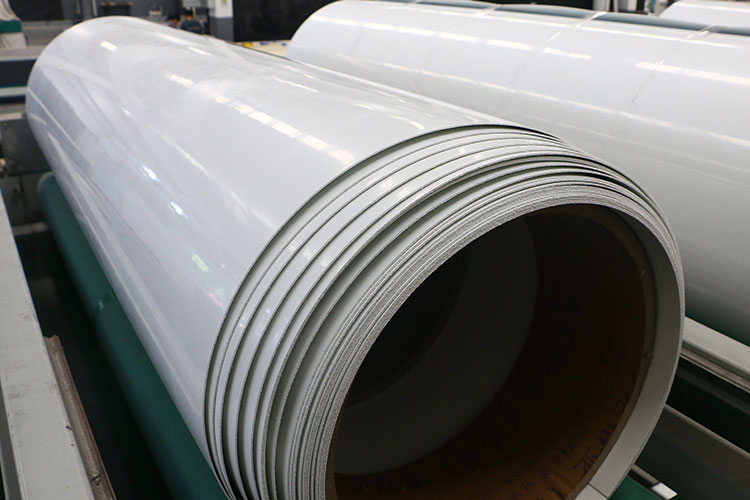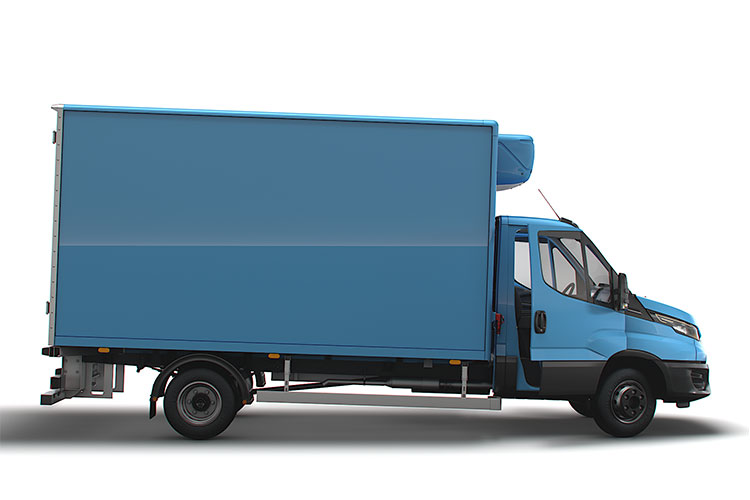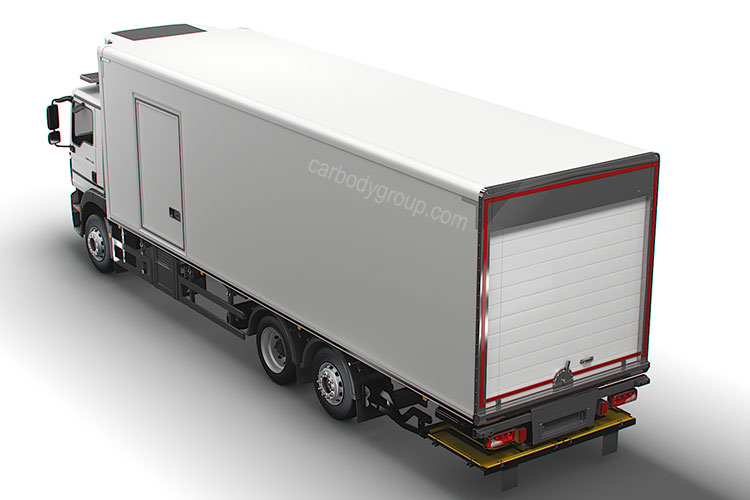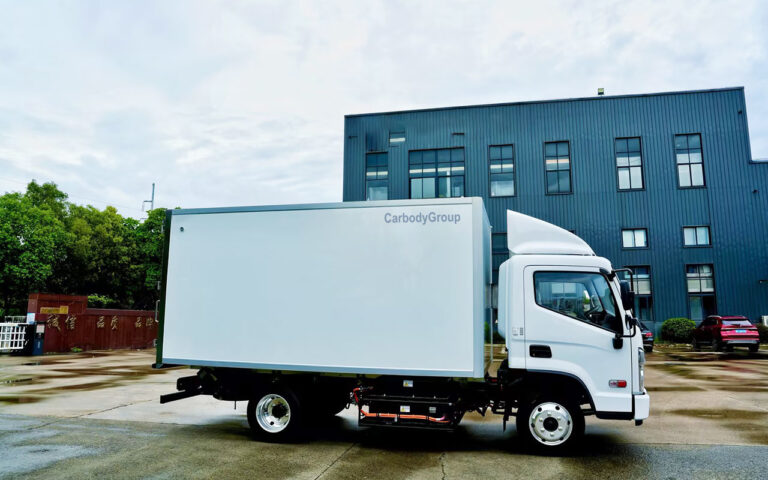A box truck is a small to large cargo truck with an enclosed cargo box, also called a cube truck, cube van or straight truck. Box trucks are most commonly used in logistics, transportation and urban distribution. Below is a comprehensive breakdown of box truck types, uses, benefits and more.
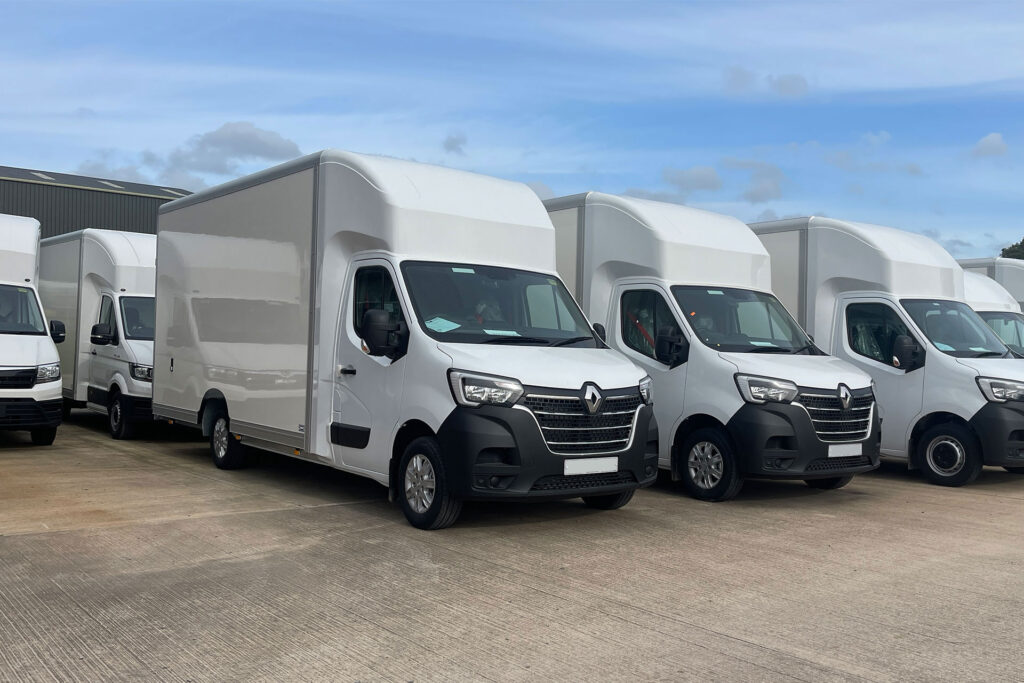
Box Truck Features
The cab and cargo box of a box truck can be split or integrated. Key features include:
The enclosed cargo box is made of multi-layer composite material, which is dust-proof, waterproof, impact resistant, corrosion resistant, UV resistant and ultra-lightweight.
Diversified door designs: Rear double doors, side sliding doors, rolling doors, etc., to improve loading and unloading efficiency.
Load classification: From small cars of 1 ton to heavy cars of more than 20 tons, covering all scenarios of transportation needs.
Types of Box Trucks
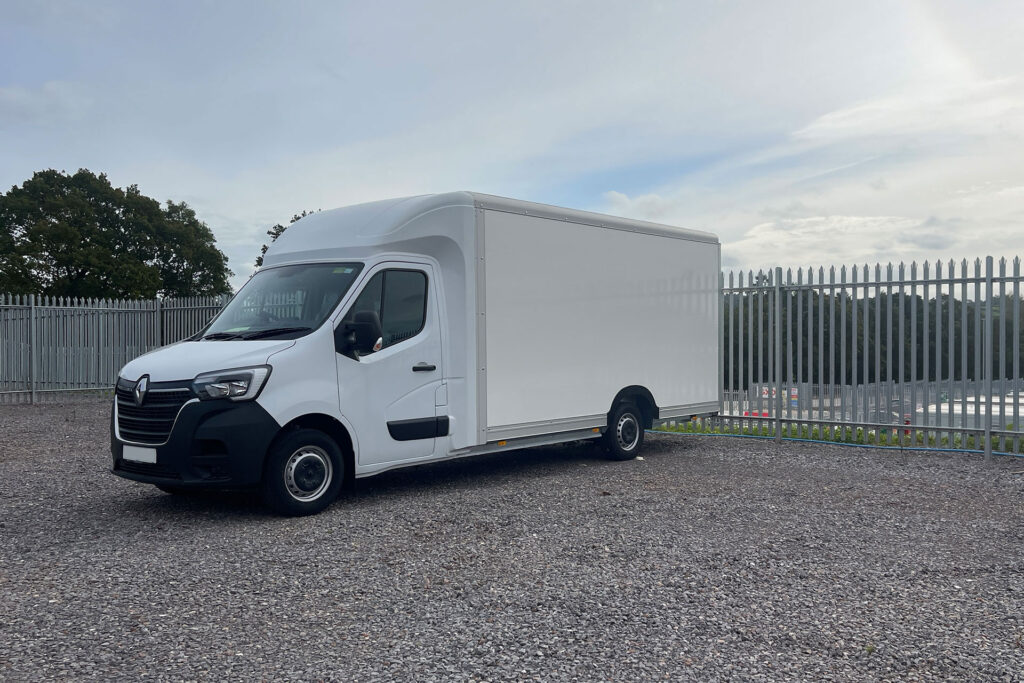
1. By Load Capacity
| Type | Vehicle Weight | Cargo Box Length | Applications |
| Light Van | 3-6 tons | 12-16 feet | Flower, cold chain, urban delivery |
| Medium Van | 6-11 tons | 16-24 feet | Supermarket restocking, medical logistics |
| Heavy Van | 11+ tons | 26+ feet | Delivery, moving |
2. By Design
Refrigerated Box Trucks
Refrigerated box trucks, also called refrigerator trucks, freezer trucks, reefer trucks. It supports multi-temperature zone regulation (-25°C to +15°C), with fiberglass PU/XPS insulation material, thermal conductivity ≤ 0.024W/m-K, and temperature control accuracy ± 0.5°C. The refrigerated truck can transport perishable products to prevent deterioration, such as fruits and vegetables, fresh food, medicine and vaccine.
Cargo Vans
cargo vans, also called “cargo trailers”, “dry cargo trucks” or “box trailers”, have no temperature control system and are low cost. With its completely enclosed design, it protects cargo from inclement weather and is typically used for all types of LTL or full truckload transportation. The dry cargo box body is made of high quality PP honeycomb panel or fiberglass XPS foam panel, it is extremely lightweight, easy to maintain and super durable.
High Cube Box Trucks
The High Cube Box Truck is a cargo vehicle with a cargo box height higher than a standard truck, providing more vertical space (up to 10 feet/3 meters). It is suitable for transporting bulky but lightweight goods such as furniture, appliances and textiles. It is widely used in scenarios such as moving, e-commerce logistics, and urban distribution, but must pay attention to the height limit and center of gravity.
Multi-Purpose Box Trucks
Multi-functional box trucks, or service trucks, are adapted to special needs such as landscaping, emergency rescue and bulletproof banknote transportation by modifying cargo boxes.
Landscaping type: equipped with water tank, sprayer, tool rack, covering 5km of green belt in a single operation.
Emergency rescue type: integrated generator, folding stretcher, first aid medicine cabinet, support disaster rescue.
Flatbed Van Trucks
This is a flatbed van truck with a flatbed construction on the bottom of the cargo box and no sides or top. This flatbed design facilitates quick loading of extra-long or extra-wide cargo. Such as construction materials, machinery and equipment transportation.
Box Truck Size
Small Box Truck
| Box Truck Type | Cargo Box(L×W×H) |
| Wuling Rongguang | 2.585m × 1.5m × 1.56m |
| Foton Xiangling | 3.3m × 1.71m × 1.7m |
| JMC Shunda | 3.32m × 1.8m × 1.73m |
Lightweight Box Truck
| Box Truck Type | Cargo Box(L×W×H) |
| JMC Shunda | 3.8m × 1.85m × 1.81m |
| Sinotruk HOWO Hanjiang | 4.15m × 2.3m × 2.3m |
| JAC Junling V6 | 4.12m × 2.42m × 2.22m |
Medium Size Box Truck
| Box Truck Type | Cargo Box(L×W×H) |
| Sinotruk HOWO G5X | 5.2m × 2.44m × 2.3m |
| FAW Jiefang J6L | 6.8m × 2.46m × 2.6m |
| JAC Gerfa K6L | 7.2m × 2.48m × 2.5m |
Benefits of Using a Box Truck?
Cost advantage: Enclosed boxes reduce cargo loss and improve loading efficiency by 23%; small and medium box trucks cost 18% less per mile than open trucks, and fuel consumption on urban roads is 25% less than semi-trailers (source: American Transportation Association).
Safety: Enclosed cargo box reduces cargo loss rate by 70% (insurance company statistics).
Crush Resistance: Continuous fiberglass foam composite box has a crush resistance of 800kPa or more.
Right-of-way advantage: It can pass through most of the urban prohibited cargo areas.
Multifunctionality: through the transformation of the cargo box, it is adapted to a variety of scenarios, such as cold chain, express delivery, emergency rescue and so on.
Well-Known Box Truck Manufacturer
| Brands | Advantages |
| CarbodyGroup | High quality fiberglass composite cargo box customization solutions. |
| Wabash | 31% market share for all reefer trucks |
| Great Dane | North American leader in high-cube box trucks |
About CarbodyGroup
Carbodygroup is a global high quality box truck manufacturer, dedicated to producing high quality truck CKD/SKD kits, providing the best box truck body solutions for global truck manufacturers, truck dealers, truck converters, transportation companies, logistics companies, cold chain companies, food companies, pharmaceutical companies, DIY truck enthusiasts and so on.
Core technology: one-piece vacuum negative pressure molding technology, quick assembly system, box body assembly time reduced by 70%.
Box Materials
Uses of Box Trucks
Cargo Transportation
Enclosed box trucks are suitable for transporting various types of general cargo, such as electronic products, home appliances and daily necessities. Fragile goods can be effectively protected from the external environment (e.g. rain, dust). With the addition of pallets, racks or fixtures, box trucks can also be used to transport bulk goods.
Logistics and Distribution
Box trucks can be used for intra-city courier, parcel and small package distribution. Straight trucks can also be used to transport larger quantities of goods for intercity logistics. In international logistics, box trucks are used for short-haul cross-border transportation, such as moving goods between ports and inland warehouses.
Cold Chain Transportation
Box trucks can be used to transport fruits, vegetables, white meats, seafood, dairy products, frozen beverages, pharmaceuticals, chemicals, and other goods that require constant temperature control.
Greening & Sanitation
The box truck is equipped with an integrated system of water tank, sprayer and dumpster that can be used for urban greening maintenance.
How Have Box Trucks Evolved over Time?
- 1920’s: Wooden cargo box, less than 1 ton capacity, limited to short hauls of agricultural products.
- 1950s: All-metal (steel) body popularized, load capacity increased to 3 tons, box life extended to 5-8 years.
- 2000s: Lightweighting opens up, with FRP (fiberglass reinforced plastic) materials reducing box weight by 25% and increasing fuel efficiency by 8%.
- 2020s: Continuous fiberglass laminate panel technology, extremely lightweight, easy to maintain, odorless, easy to clean, impact resistant.
Can Box Trucks Be Customized?
Yes, box trucks can be customized with cargo box sizes, materials, features (e.g., refrigerated, multi-temperature zones) and accessories (e.g., lift tailgate, tool racks).
For more information on customized box truck solutions
Access the following resources:

